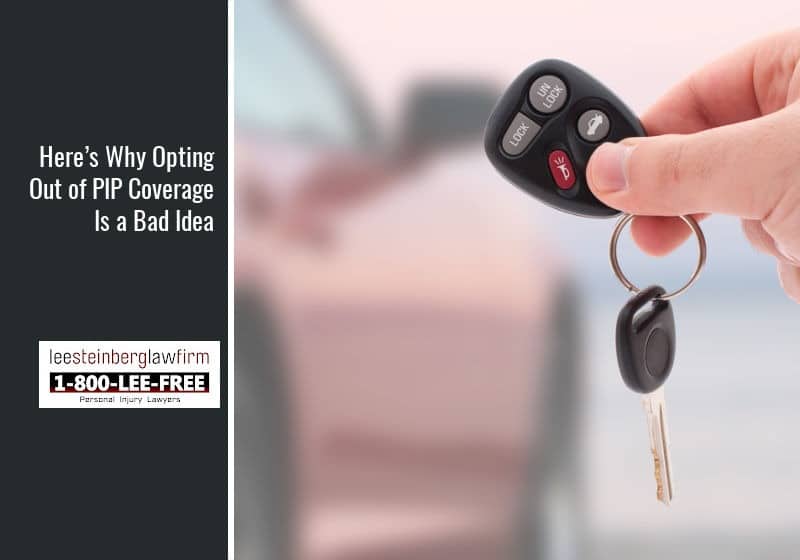
It is well known that insurance premiums can be expensive. Today, when you purchase car insurance in Detroit or throughout Michigan, you are presented with the option of opting out of PIP coverage. In times of financial hardship, it can seem enticing to just tell your insurance agent to get you the cheapest policy, but there are many reasons why this is a bad idea.
In this blog, we discuss what PIP coverage entails and why you should think twice before opting out of it.
What Is PIP Coverage?
Personal injury protection is also called “no-fault insurance” and it pays for the medical bills for you and your passengers when they inevitably arise after a car accident. PIP also encompasses accidents when you are a passenger in someone else’s car and when you are hit by a car as a pedestrian or cyclist. It is sometimes confused with bodily injury liability insurance, which pays for the medical bills of everyone involved including the other party if you were at fault for the accident. PIP only covers you and your passengers’ medical bills.
It is possible that there may be some overlap in coverage for your PIP insurance and health insurance, but don’t let that fool you. Many health insurance policies exclude injuries sustained in a car accident, while PIP is specifically for car-related injuries.
What Does PIP Cover?
PIP covers any necessary medical procedures in addition to any reasonable expenses to help you recover from your injuries you may have suffered in a Detroit accident. Such expenses include:
- Hospitalization
- Operations
- Professional care
- Lost wages
- Funeral expenses
- Accidental death benefits
- Home care expenses during your recovery time such as house cleaning or childcare
Some states require you to file a claim under a PIP policy before going to your health insurance, but even if the state you live in does not have this requirement, there are many reasons why you should do this anyway. In addition to PIP being specifically written for car accidents, you receive many benefits from it that health insurance does not offer. For example, PIP covers potentially lost wages due to your injury as well as funeral costs, neither of which are offered by health insurance.
Some states even allow for PIP coverage and your health insurance policy to work together in the event of a car accident. For example, your insurance policy may cover the physical injuries you sustained while PIP will cover any economic losses such as lost wages.
What Does PIP Cover that Health Insurance Does Not Cover in Michigan?
The answer to this question depends on the type of health insurance you have. But in general, PIP medical covers lots of medical treatment and procedures that health insurance does not. For example, Medicare limits the number of chiropractor visits, physical therapy visits, in-home therapy care, and other treatment. Medicaid does the same and many doctors frankly won’t see if you are only on Medicaid.
Many private health insurance plans, like Blue Cross, HAP or Priority Health, also have limitations on treatment. For example, these plans also limit the number of chiropractic and physical therapy visits allowed. Many plans require a referral. No doctor referral is necessary under a PIP plan. Many health plans limit prescription drugs, skilled nursing, in-patient care, hospital care and other important treatment plans.
In addition, PIP coverage provides payment for in-home nursing care. This is also known as attendant care. This type of care includes help with hygiene, transferring, changing bandages, assistance with getting dressed and washing, driving and general supervision. Medicare and most health insurance plans don’t pay for this.
These limitations do not exist under PIP coverage. So long as the treatment is medically necessary and related to the truck or car accident, then the car insurance company must pay for the treatment. Therefore, you have access to a lot more medical treatment through PIP coverage than regular health insurance.
No-Fault States
If you live in a no-fault state like Michigan, a minimum amount of PIP coverage is required. This means that your insurance company will cover the expenses of your accident even if another driver is at fault unless a certain threshold is met. Depending on the state you live in, this threshold may be either monetary or verbal. The 12 no-fault states are as follows:
- New York
- Florida
- Hawaii
- Kansas
- Kentucky
- Pennsylvania
- Massachusetts
- Utah
- Michigan
- Minnesota
- North Dakota
- New Jersey
If a state has a monetary threshold, it means your medical expenses must exceed a certain dollar amount set by the state before you can sue another driver for damages. Conversely, states with verbal thresholds specify a certain type of injury must be sustained before a lawsuit can be filed.
Michigan is a verbal threshold state. In Michigan, you must prove what is known as a “serious impairment of body function.” This means:
- Was objectively manifested, meaning it is observable or perceivable from actual symptoms or conditions by someone other than the injured person,
- Affected an important body function, and
- Affects the injured person’s general ability to lead his or her normal life, meaning it has had an influence on some of the person’s capacity to live in his or her normal manner of living.
Contact a Detroit Personal Injury Lawyer Today
PIP coverage can mean the difference between living a happy life or being crushed with medical bills after a car accident. There are so many reasons why opting out of PIP coverage is a bad idea, so don’t restrict yourself from receiving the help you need. The Lee Steinberg Law Firm has been helping car accident victims for over 40 years obtain the no-fault benefits and pain and suffering compensation they deserve.
Call our office today. You pay nothing unless we win your Detroit and Michigan car accident case. Let us help you by calling 1-800-LEE-FREE (1-800-533-3733).

